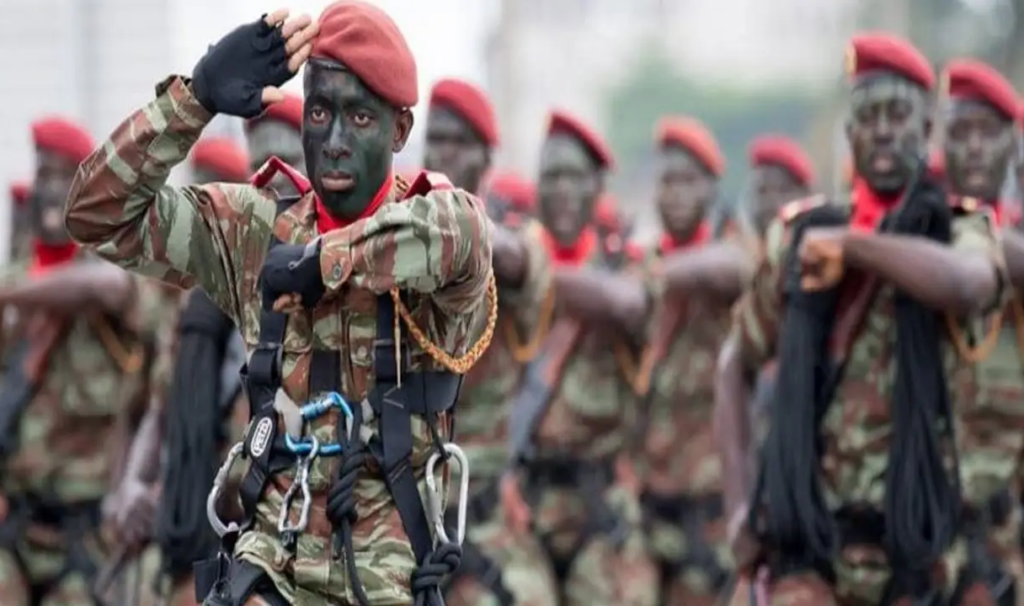In February 2022, a team of forest rangers was ambushed in a cross-border nature park, the W National Park, managed by Benin, Burkina Faso and Niger. The provisional death toll was six, including five rangers and a soldier from the Beninese armed forces (FAB), and ten others were injured. Jihadist groups arriving via the Sahel are the perpetrators of this unclaimed terrorist action, making the region increasingly dangerous.
This year was also marked by an intense sociopolitical crisis caused by the organization of legislative elections in 2020, which the Beninese opposition still describes as exclusive. Several cities have recorded protest movements against a backdrop of violence that has caused both human and material damage. These recent incidents prove that the fire that was smouldering at the time has not yet been extinguished.
This is the double challenge facing the Beninese government. Once again in the region, the solution will probably not be satisfied with security alone.
Reminder of recent events
On 1 May 2019, two French tourists were abducted and their guide killed just a stone’s throw from the border with Burkina Faso, in the Pendjari National Park, which borders the W. This cross-border area, known as WAPO, named after the W, Arly, Pendjari and Oti parks, which cross the borders of Niger, Burkina Faso, Benin and Togo, is JNIM’s second stronghold in the Sahel after the Inner Niger Delta.
The main causes of this situation are the modification of transhumance routes following the violence in Burkina Faso, Niger and Mali or the creation of protected ecological areas, land reforms, conflicts between farmers and herders, a feeling of marginalisation of the populations of the North in relation to those of the South, and a military presence in the region that remains inadequate.

The Beninese authorities have officially recognized that the territory known as “Point Triple”, the border area between Benin, Burkina Faso and Niger, is considered “critical” because of the terrorist actions observed. Yet this situation of security instability is not new. It is strangely reminiscent of the existing tri-border area in southern Mali, northern Burkina and Niger or the Lake Chad area (see our article: Lake Chad Basin terrorists and terrorism in Burkina Faso). And the expansion of terrorism stems from much the same causes, with the main point being the absence of coordinated military operations and a flagrant lack of intelligence sharing among the countries concerned.
However, in this particular case, to combat this scourge, Benin is implementing structural reforms, acquiring modern means and establishing an original strategy by consulting the lessons learnt from the experience of the security forces of its neighbouring countries, such as the Nigerian Armed Forces (FAN) or the Togolese Armed Forces (FAT).
Creation of Beninese Armed Forces and staffing trends
The Constitution of 11 December 1990 requires the Beninese Armed Forces to ensure effective, permanent and efficient security coverage of the territory, as well as border vigilance.
The Beninese Armed Forces (FAB) are composed of the Army, the Navy, the Air Force and the National Guard, with a total of about 12,100 personnel.
They are distributed as follows: 8,000 men and women in the Army divided into 13 battalions, a fire brigade group and a headquarters group. 550 in the Navy are in charge of the surveillance of its coastline and the fight against maritime piracy by arming five coastal patrol boats. 500 in the air force operate a dozen aircraft, mainly for transport and surveillance. Finally, 3,000 in the National Guard are responsible for the security of the President of the Republic, ministers, members of the government, institutions of the Republic and the fight against terrorism.
The materials and equipment are mainly of old Russian, American, English and French manufacture.
On Thursday 9 January 2020, the Supreme Chief of the Armed Forces, Patrice Talon, announced the creation of the National Guard and affirmed the reinforcement of the forces’ means of action with a view to greater efficiency of the defence and security tool. In addition, 600 police officers are also being recruited for the Republican Police in order to enable the activation of new territorial and mobile police units in the country. These recruitments will also help to reduce the unemployment rate in Benin.
The issue of borders and wildlife parks as safe havens for terrorist groups
Following the first two officially recognized jihadist attacks at the end of 2021, the Beninese army has reinforced its presence in the north of the country. However, incidents continue to occur. In January, two Beninese soldiers were killed when their vehicle fell victim to an improvised explosive device in the Atakora department in the north of the country.
Since the beginning of 2022, the threat of terrorism has become a reality in northern Benin. The first attack recorded by Benin since the beginning of the year was an attack on Tuesday 8 February 2022 in the so-called “triple point” area. The death toll rose to nine. This is a situation that worries Benin. The government is putting in place a new strategy to counter the jihadist attacks that are beginning to intensify.
Later that night, two soldiers of the Beninese Armed Forces were killed in the locality of Porga, near the border with Burkina Faso, and a jihadist was shot dead. The village is now classified as a red zone. An eyewitness said the attackers numbered around 100 and were masked. They demanded the closure of churches and all schools where the French language is taught. For them, Islam and the Koran must occupy all the space. This is undoubtedly the signature of Boko Haram. In the locality of Mékrou Yinyin, further east, soldiers guarding the border zone were attacked by unidentified individuals who tried to bypass the security arrangements in place. One assailant was killed.
The Beninese Defence and Security Forces succeeded in inflicting a crushing defeat in a frontal confrontation with terrorists on 27 and 28 June 2022. This retaliation was in response to an attack carried out on the night of 25 to 26 June in Matéri in the Atacora region. The jihadists, who suffered heavy casualties, went around the localities and hamlets to recruit supporters with glowing promises. But according to several experts in the region, Benin, as a coastal country, is also the target of drug traffickers operating from Latin America.
Unlike other countries closer to Central Africa, the terrorists’ focus on Benin looks suspiciously like the search for a maritime outlet. Access to the sea would allow the jihadists to increase the fluidity of their supply of arms and ammunition on the one hand, and on the other hand to ensure, through drug trafficking and the sale of slaves, the financial contribution necessary to extend their destructive actions in the region, while at the same time ensuring their sustainability.
External operations and foreign aid
Since 2004, Benin’s armed forces have been participating in the UN operation in Ivory Coast. Since 2006, Benin has also taken part in the UN mission in Congo. In addition, the Beninese armed forces deploy some 50 UN observers around the world, such as in Haiti, Cyprus, Liberia, Burundi and Sudan.
The operational capabilities of the FAB Army were reinforced during the joint Franco-Beninese military exercise “Baoura 2017”. It allowed the engagement of a group of forces against an enemy in a short period of time and the restoration of territorial integrity in a defined area.
From 8 to 20 December 2019, near Cotonou, 30 sappers from the combat engineer section of the 1st FAB engineer battalion were trained in the field of counter-IED by specialists from the French elements in Senegal.
On 24 April 2022, a French navy vessel, the Latouche-Tréville, on patrol in the Gulf of Guinea, conducted joint training with the FAB patrol boat Oueme. In addition, 10 Beninese sailors embarked on board for a period of sea training.
The Defence Forces Enabling Development program provides equipment and material support to units stationed in northern Benin. Funded by the European Union and in cooperation with the Royal Belgian Army, DEFEND provides a complementary response to the usual defence cooperation projects. This program improves land mobility and communications, aerial surveillance and observation, as well as surveillance and intervention capacity on the Niger River. Scheduled to run for three years until July 2023, the EU has already delivered major equipment in 2021 and 2022.
On 5 June 2022, the whole world celebrated International Environment Day. This was an opportunity for the various components of the FAB to launch the intensive reforestation operation initiated by the State on National Tree Day.
On Friday 1 July 2022, a forced “move” took place at the home of the former king of poultry. This year, a de-registration has been decided for wanted soldiers who have developed the bad habit of not fulfilling their commitment. The Beninese government is thus demonstrating its merciless fight against impunity. On the other hand, the release of some twenty political prisoners a few days ago proves its intention to move towards more dialogue and tolerance, encouraging all parties to accompany it on the road to decongestion and reconciliation.
It is true that in Africa, the difficulties of “living together” follow one another and are similar. The painful experience of Ivory Coast is still vivid in people’s minds. However, recent history in South Africa, the Democratic Republic of Congo and Ivory Coast shows that political conflicts are not inevitable and that the combined efforts of both sides can change the face of a country.
Internationally, a recent series of border raids in countries south of the Sahel confirms analyses that jihadist groups in the region are seeking to advance towards the coast. Benin is the first to be affected by this race to the sea. But it cannot act alone, as Burkina Faso, Niger, Togo and Nigeria have already been through the ordeal of terrorism. Benin will rely on the experience acquired by these neighbouring countries to be able to fight effectively.
What saves the region for the moment is the lack of unity and coordination among the various actors in jihadist terrorism, who are more concerned with settling internal quarrels and satisfying tribal and local interests than with a broader strategy at regional level.
